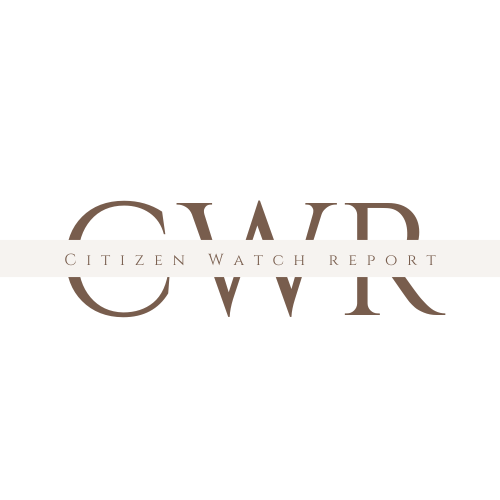The wordsmiths at the Federal Reserve wisely omitted the line about a “sound and resilient” banking system in its statement on January 31. That same day shares of New York Community Bank plunged when the bank announced a loss of thirty-six cents per share when analysts expected earnings of twenty-seven cents a share for the fourth quarter.
Internal or external auditors occasionally comb through individual loans in a bank’s portfolio and make judgments as to whether those loans are worth what the bank says they are worth due to lower appraised values and other issues either particular to an individual property or the market as a whole. Bankers then, begrudgingly, set aside earnings for potential loan losses.
In the case of the real estate loans at New York Community Bank, loan examiners must have told senior management to increase the bank’s loan loss provision by 790 percent to $552 million. This balance sheet expense drove the fourth-quarter loss and caused the bank to cut its dividend.
“The bank reported a near $2 billion increase in criticized multifamily loans—debt with a probability of default,” wrote Suzannah Cavanagh for the Real Deal. “Of its $37 billion multifamily loan book, which comprises 44 percent of its total portfolio, 8 percent was marked criticized in the quarter.” The bank also reported a $42 million net charge-off—debt unlikely to be paid back—for an office loan on which the borrower stopped paying interest.
The bank’s chief financial officer John Pinto pooh-poohed the loan carnage, saying, “We had higher levels of substandard [loans] throughout the Financial Crisis, throughout the pandemic. The rise in substandard loans does not lead directly to specific losses.”
Hope Springs Eternal
Like the 2008 financial crisis, what happens in the US isn’t staying in the US. Tokyo-based Aozora Bank said losses in its US office’s loan portfolio will likely lead to a net loss for the year ending in March, the Wall Street Journal reports. Also, the private Swiss bank Julius Baer took a roughly $700 million provision on loans made to Austrian property landlord Signa Group. The bank said shutting down the unit was what made the loans, and the chief executive has resigned.
Jay Powell made no mention of the New York Community Bank’s news in his prepared remarks, and reporters didn’t ask him about the bank’s troubles during the Q and A. There were no questions concerning the Bank Term Funding Program that will be sunsetted March 11 despite having risen to record highs. According to the Wall Street Journal’s Andrew Ackerman, the popularity of the program was not because of new stresses on banks. But reportedly, “some banks had recently figured out a way to game the program by pocketing the difference between what they pay to borrow the funds and what they can earn from parking the funds at the central bank as overnight deposits.” On January 31, banks had borrowed more than $165 billion from the facility.
It’s doubtful there are no new stresses on banks. New York Community Bank is not an anomaly.
To that point, real estate investor Barry Sternlicht told a conference crowd,
We have a problem in real estate. In every sector of real estate, not just office, because of the 500 basis point increase in rates that was vertical. The office market has an existential crisis right now . . . it’s a $3 trillion dollar asset class that’s probably worth $1.8 trillion 1707687051. There’s $1.2 trillion of losses spread somewhere, and nobody knows exactly where it all is.
Sternlicht mentioned a project in New York that was purchased for $200 million that he thought was now worth just $30 million, encumbered by a $100 million loan.
Harold Bordwin, a principal at Keen-Summit Capital Partners LLC in New York, which specializes in renegotiating distressed properties, told Bloomberg, “Banks’ balance sheets aren’t accounting for the fact that there’s lots of real estate on there that’s not going to pay off at maturity.”
Bordwin went on to say, “Banks—community banks, regional banks—have been really slow to mark things to market because they didn’t have to, they were holding them to maturity. They are playing games with what is the real value of these assets” (emphasis added).
“The percentage of loans that banks have so far been reported as delinquent are a drop in the bucket compared to the defaults that will occur throughout 2024 and 2025,” David Aviram, principal at Maverick Real Estate Partners told Bloomberg. “Banks remain exposed to these significant risks, and the potential decline in interest rates in the next year won’t solve bank problems.”
The plan for the Bank Term Funding Program was hatched in haste over a weekend in March of last year in the wake of the Silicon Valley Bank and Signature Bank failures (Signature’s assets were purchased by New York Community Bank). To hide their embarrassment over banks using the facility for risk-free interest rate arbitrage, they say they are shutting the program down because there is no stress in the banking system.
There is stress aplenty in the banking world. As Murray Rothbard wrote in The Mystery of Banking, “Fractional reserve bank credit expansion is always shaky, for the more extensive its inflationary creation of new money, the more likely it will be to suffer contraction and subsequent deflation.”
While bankers and regulators have their heads in the sand, the contraction has already begun.


















































